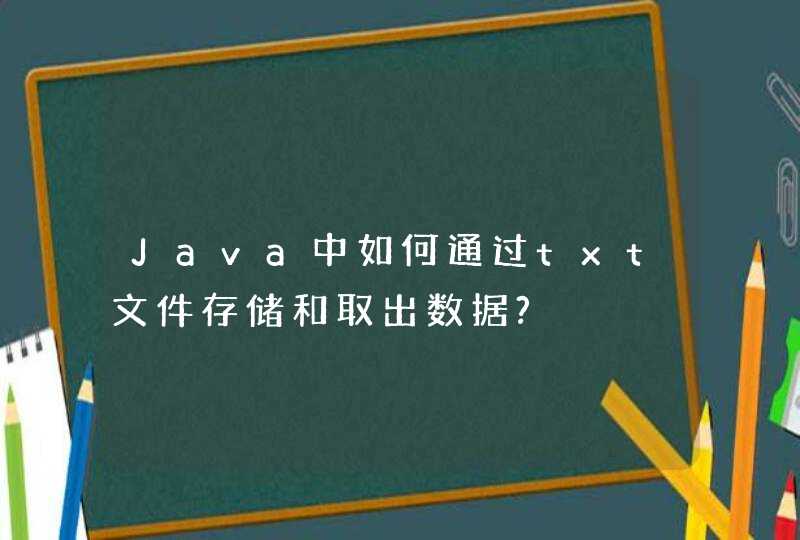
HASH主要用于信息安全领域中加密算法,它把一些不同长度的信息转化成杂乱的128位的编码里,叫做HASH值. 也可以说,hash就是找到一种数据内容和数据存放地址之间的映射关系。Hash算法在信息安全方面的应用主要体现在以下的3个方面:文件校验、数字签名、鉴权协议
程程序实现
// 说明:Hash函数(即散列函数)在程序设计中的应用目标 ------ 把一个对象通过某种转换机制对应到一个
//size_t类型(即unsigned long)的整型值。
// 而应用Hash函数的领域主要是 hash表(应用非常广)、密码等领域。
// 实现说明:
// ⑴、这里使用了函数对象以及泛型技术,使得对所有类型的对象(关键字)都适用。
// ⑵、常用类型有对应的偏特化,比如string、char*、各种整形等。
// ⑶、版本可扩展,如果你对某种类型有特殊的需要,可以在后面实现专门化。
// ⑷、以下实现一般放在头文件中,任何包含它的都可使用hash函数对象。
//------------------------------------实现------------------------------------------------
#include <string>
using std::string
inlinesize_thash_str(const char* s)
{
unsigned long res = 0
for (*s++s)
res = 5 * res + *s
returnsize_t(res)
}
template <class Key>
struct hash
{
size_toperator () (const Key&k) const
}
// 一般的对象,比如:vector<queue<string>>;的对象,需要强制转化
template <class Key >
size_thash<Key>::operator () (const Key&k) const
{
size_tres = 0
size_tlen = sizeof(Key)
const char* p = reinterpret_cast<const char*>(&k)
while (len--)
{
res = (res<<1)^*p++
}
return res
}
// 偏特化
template<>
size_thash<string >::operator () (const string&str) const
{
return hash_str(str.c_str())
}
typedef char* PChar
template<>
size_thash<PChar>::operator () (const PChar&s) const
{
return hash_str(s)
}
typedef const char* PCChar
template<>
size_thash<PCChar>::operator () (const PCChar&s) const
{
return hash_str(s)
}
template<>size_t hash<char>::operator () (const char&x) const { return x}
template<>size_t hash<unsigned char>::operator () (const unsigned char&x) const { return x}
template<>size_t hash<signed char>::operator () (const signed char&x) const { return x}
template<>size_t hash<short>::operator () (const short&x) const { return x}
template<>size_t hash<unsigned short>::operator () (const unsigned short&x) const { return x}
template<>size_t hash<int>::operator () (const int&x) const { return x}
template<>size_t hash<unsigned int>::operator () (const unsigned int&x) const { return x}
template<>size_t hash<long>::operator () (const long&x) const { return x}
template<>size_t hash<unsigned long>::operator () (const unsigned long&x) const { return x}
// 使用说明:
//
// ⑴、使用时首先由于是泛型,所以要加上关键字类型。
//
// ⑵、其次要有一个函数对象,可以临时、局部、全局的,只要在作用域就可以。
//
// ⑶、应用函数对象作用于对应类型的对象。
//----------------------- hash函数使用举例 -------------------------
#include <iostream>
#include <vector>
#include <string>
using namespace std
int main()
{
vector<string>vstr⑵;
vstr[0] = "sjw"
vstr[1] = "suninf"
hash<string>strhash// 局部函数对象
cout <<" Hash value: " <<strhash(vstr[0]) <<endl
cout <<" Hash value: " <<strhash(vstr[1]) <<endl
cout <<" Hash value: " <<hash<vector<string>>() (vstr) <<endl
cout <<" Hash value: " <<hash<int>() (100) <<endl// hash<int>() 临时函数对象
return 0
}
有现成的SHA1算法函数
复制过来。
然后打开文件, 读数据, 调用SHA1函数即可。
#include <stdio.h>#include <stdlib.h>
#include <string.h>
#include <assert.h>
#include <errno.h>
#undef BIG_ENDIAN_HOST
typedef unsigned int u32
/****************
* Rotate a 32 bit integer by n bytes
*/
#if defined(__GNUC__) && defined(__i386__)
static inline u32
rol( u32 x, int n)
{
__asm__("roll %%cl,%0"
:"=r" (x)
:"0" (x),"c" (n))
return x
}
#else
#define rol(x,n) ( ((x) << (n)) | ((x) >> (32-(n))) )
#endif
typedef struct {
u32 h0,h1,h2,h3,h4
u32 nblocks
unsigned char buf[64]
int count
} SHA1_CONTEXT
void
sha1_init( SHA1_CONTEXT *hd )
{
hd->h0 = 0x67452301
hd->h1 = 0xefcdab89
hd->h2 = 0x98badcfe
hd->h3 = 0x10325476
hd->h4 = 0xc3d2e1f0
hd->nblocks = 0
hd->count = 0
}
/****************
* Transform the message X which consists of 16 32-bit-words
*/
static void
transform( SHA1_CONTEXT *hd, unsigned char *data )
{
u32 a,b,c,d,e,tm
u32 x[16]
/* get values from the chaining vars */
a = hd->h0
b = hd->h1
c = hd->h2
d = hd->h3
e = hd->h4
#ifdef BIG_ENDIAN_HOST
memcpy( x, data, 64 )
#else
{
int i
unsigned char *p2
for(i=0, p2=(unsigned char*)x i < 16 i++, p2 += 4 )
{
p2[3] = *data++
p2[2] = *data++
p2[1] = *data++
p2[0] = *data++
}
}
#endif
#define K1 0x5A827999L
#define K2 0x6ED9EBA1L
#define K3 0x8F1BBCDCL
#define K4 0xCA62C1D6L
#define F1(x,y,z) ( z ^ ( x & ( y ^ z ) ) )
#define F2(x,y,z) ( x ^ y ^ z )
#define F3(x,y,z) ( ( x & y ) | ( z & ( x | y ) ) )
#define F4(x,y,z) ( x ^ y ^ z )
#define M(i) ( tm = x[i&0x0f] ^ x[(i-14)&0x0f] \
^ x[(i-8)&0x0f] ^ x[(i-3)&0x0f] \
, (x[i&0x0f] = rol(tm,1)) )
#define R(a,b,c,d,e,f,k,m) do { e += rol( a, 5 ) \
+ f( b, c, d ) \
+ k \
+ m \
b = rol( b, 30 ) \
} while(0)
R( a, b, c, d, e, F1, K1, x[ 0] )
R( e, a, b, c, d, F1, K1, x[ 1] )
R( d, e, a, b, c, F1, K1, x[ 2] )
R( c, d, e, a, b, F1, K1, x[ 3] )
R( b, c, d, e, a, F1, K1, x[ 4] )
R( a, b, c, d, e, F1, K1, x[ 5] )
R( e, a, b, c, d, F1, K1, x[ 6] )
R( d, e, a, b, c, F1, K1, x[ 7] )
R( c, d, e, a, b, F1, K1, x[ 8] )
R( b, c, d, e, a, F1, K1, x[ 9] )
R( a, b, c, d, e, F1, K1, x[10] )
R( e, a, b, c, d, F1, K1, x[11] )
R( d, e, a, b, c, F1, K1, x[12] )
R( c, d, e, a, b, F1, K1, x[13] )
R( b, c, d, e, a, F1, K1, x[14] )
R( a, b, c, d, e, F1, K1, x[15] )
R( e, a, b, c, d, F1, K1, M(16) )
R( d, e, a, b, c, F1, K1, M(17) )
R( c, d, e, a, b, F1, K1, M(18) )
R( b, c, d, e, a, F1, K1, M(19) )
R( a, b, c, d, e, F2, K2, M(20) )
R( e, a, b, c, d, F2, K2, M(21) )
R( d, e, a, b, c, F2, K2, M(22) )
R( c, d, e, a, b, F2, K2, M(23) )
R( b, c, d, e, a, F2, K2, M(24) )
R( a, b, c, d, e, F2, K2, M(25) )
R( e, a, b, c, d, F2, K2, M(26) )
R( d, e, a, b, c, F2, K2, M(27) )
R( c, d, e, a, b, F2, K2, M(28) )
R( b, c, d, e, a, F2, K2, M(29) )
R( a, b, c, d, e, F2, K2, M(30) )
R( e, a, b, c, d, F2, K2, M(31) )
R( d, e, a, b, c, F2, K2, M(32) )
R( c, d, e, a, b, F2, K2, M(33) )
R( b, c, d, e, a, F2, K2, M(34) )
R( a, b, c, d, e, F2, K2, M(35) )
R( e, a, b, c, d, F2, K2, M(36) )
R( d, e, a, b, c, F2, K2, M(37) )
R( c, d, e, a, b, F2, K2, M(38) )
R( b, c, d, e, a, F2, K2, M(39) )
R( a, b, c, d, e, F3, K3, M(40) )
R( e, a, b, c, d, F3, K3, M(41) )
R( d, e, a, b, c, F3, K3, M(42) )
R( c, d, e, a, b, F3, K3, M(43) )
R( b, c, d, e, a, F3, K3, M(44) )
R( a, b, c, d, e, F3, K3, M(45) )
R( e, a, b, c, d, F3, K3, M(46) )
R( d, e, a, b, c, F3, K3, M(47) )
R( c, d, e, a, b, F3, K3, M(48) )
R( b, c, d, e, a, F3, K3, M(49) )
R( a, b, c, d, e, F3, K3, M(50) )
R( e, a, b, c, d, F3, K3, M(51) )
R( d, e, a, b, c, F3, K3, M(52) )
R( c, d, e, a, b, F3, K3, M(53) )
R( b, c, d, e, a, F3, K3, M(54) )
R( a, b, c, d, e, F3, K3, M(55) )
R( e, a, b, c, d, F3, K3, M(56) )
R( d, e, a, b, c, F3, K3, M(57) )
R( c, d, e, a, b, F3, K3, M(58) )
R( b, c, d, e, a, F3, K3, M(59) )
R( a, b, c, d, e, F4, K4, M(60) )
R( e, a, b, c, d, F4, K4, M(61) )
R( d, e, a, b, c, F4, K4, M(62) )
R( c, d, e, a, b, F4, K4, M(63) )
R( b, c, d, e, a, F4, K4, M(64) )
R( a, b, c, d, e, F4, K4, M(65) )
R( e, a, b, c, d, F4, K4, M(66) )
R( d, e, a, b, c, F4, K4, M(67) )
R( c, d, e, a, b, F4, K4, M(68) )
R( b, c, d, e, a, F4, K4, M(69) )
R( a, b, c, d, e, F4, K4, M(70) )
R( e, a, b, c, d, F4, K4, M(71) )
R( d, e, a, b, c, F4, K4, M(72) )
R( c, d, e, a, b, F4, K4, M(73) )
R( b, c, d, e, a, F4, K4, M(74) )
R( a, b, c, d, e, F4, K4, M(75) )
R( e, a, b, c, d, F4, K4, M(76) )
R( d, e, a, b, c, F4, K4, M(77) )
R( c, d, e, a, b, F4, K4, M(78) )
R( b, c, d, e, a, F4, K4, M(79) )
/* Update chaining vars */
hd->h0 += a
hd->h1 += b
hd->h2 += c
hd->h3 += d
hd->h4 += e
}
/* Update the message digest with the contents
* of INBUF with length INLEN.
*/
static void
sha1_write( SHA1_CONTEXT *hd, unsigned char *inbuf, size_t inlen)
{
if( hd->count == 64 ) { /* flush the buffer */
transform( hd, hd->buf )
hd->count = 0
hd->nblocks++
}
if( !inbuf )
return
if( hd->count ) {
for( inlen && hd->count < 64 inlen-- )
hd->buf[hd->count++] = *inbuf++
sha1_write( hd, NULL, 0 )
if( !inlen )
return
}
while( inlen >= 64 ) {
transform( hd, inbuf )
hd->count = 0
hd->nblocks++
inlen -= 64
inbuf += 64
}
for( inlen && hd->count < 64 inlen-- )
hd->buf[hd->count++] = *inbuf++
}
/* The routine final terminates the computation and
* returns the digest.
* The handle is prepared for a new cycle, but adding bytes to the
* handle will the destroy the returned buffer.
* Returns: 20 bytes representing the digest.
*/
static void
sha1_final(SHA1_CONTEXT *hd)
{
u32 t, msb, lsb
unsigned char *p
sha1_write(hd, NULL, 0) /* flush */
t = hd->nblocks
/* multiply by 64 to make a byte count */
lsb = t << 6
msb = t >> 26
/* add the count */
t = lsb
if( (lsb += hd->count) < t )
msb++
/* multiply by 8 to make a bit count */
t = lsb
lsb <<= 3
msb <<= 3
msb |= t >> 29
if( hd->count < 56 ) { /* enough room */
hd->buf[hd->count++] = 0x80 /* pad */
while( hd->count < 56 )
hd->buf[hd->count++] = 0 /* pad */
}
else { /* need one extra block */
hd->buf[hd->count++] = 0x80 /* pad character */
while( hd->count < 64 )
hd->buf[hd->count++] = 0
sha1_write(hd, NULL, 0) /* flush */
memset(hd->buf, 0, 56 ) /* fill next block with zeroes */
}
/* append the 64 bit count */
hd->buf[56] = msb >> 24
hd->buf[57] = msb >> 16
hd->buf[58] = msb >> 8
hd->buf[59] = msb
hd->buf[60] = lsb >> 24
hd->buf[61] = lsb >> 16
hd->buf[62] = lsb >> 8
hd->buf[63] = lsb
transform( hd, hd->buf )
p = hd->buf
#ifdef BIG_ENDIAN_HOST
#define X(a) do { *(u32*)p = hd->h##a p += 4 } while(0)
#else /* little endian */
#define X(a) do { *p++ = hd->h##a >> 24 *p++ = hd->h##a >> 16 \
*p++ = hd->h##a >> 8 *p++ = hd->h##a } while(0)
#endif
X(0)
X(1)
X(2)
X(3)
X(4)
#undef X
}
/#include "iostream.h"#include <iostream>
#include "string.h"
#include "fstream"
#define NULL 0
unsigned int key
unsigned int key2
int *p
struct node //建节点
{
char name[8],address[20]
char num[11]
node * next
}
typedef node* pnode
typedef node* mingzi
node **phone
node **nam
node *a
using namespace std//使用名称空间
void hash(char num[11]) //哈希函数
{
int i = 3
key=(int)num[2]
while(num[i]!=NULL)
{
key+=(int)num[i]
i++
}
key=key%20
}
void hash2(char name[8]) //哈希函数
{
int i = 1
key2=(int)name[0]
while(name[i]!=NULL)
{
key2+=(int)name[i]
i++
}
key2=key2%20
}
node* input() //输入节点
{
node *temp
temp = new node
temp->next=NULL
cout<<"输入姓名:"<<endl
cin>>temp->name
cout<<"输入地址:"<<endl
cin>>temp->address
cout<<"输入电话:"<<endl
cin>>temp->num
return temp
}
int apend() //添加节点
{
node *newphone
node *newname
newphone=input()
newname=newphone
newphone->next=NULL
newname->next=NULL
hash(newphone->num)
hash2(newname->name)
newphone->next = phone[key]->next
phone[key]->next=newphone
newname->next = nam[key2]->next
nam[key2]->next=newname
return 0
}
void create() //新建节点
{
int i
phone=new pnode[20]
for(i=0i<20i++)
{
phone[i]=new node
phone[i]->next=NULL
}
}
void create2() //新建节点
{
int i
nam=new mingzi[20]
for(i=0i<20i++)
{
nam[i]=new node
nam[i]->next=NULL
}
}
void list() //显示列表
{
int i
node *p
for(i=0i<20i++)
{
p=phone[i]->next
while(p)
{
cout<<p->name<<'_'<<p->address<<'_'<<p->num<<endl
p=p->next
}
}
}
void list2() //显示列表
{
int i
node *p
for(i=0i<20i++)
{
p=nam[i]->next
while(p)
{
cout<<p->name<<'_'<<p->address<<'_'<<p->num<<endl
p=p->next
}
}
}
void find(char num[11]) //查找用户信息
{
hash(num)
node *q=phone[key]->next
while(q!= NULL)
{
if(strcmp(num,q->num)==0)
break
q=q->next
}
if(q)
cout<<q->name<<"_" <<q->address<<"_"<<q->num<<endl
else cout<<"无此记录"<<endl
}
void find2(char name[8]) //查找用户信息
{
hash2(name)
node *q=nam[key2]->next
while(q!= NULL)
{
if(strcmp(name,q->name)==0)
break
q=q->next
}
if(q)
cout<<q->name<<"_" <<q->address<<"_"<<q->num<<endl
else cout<<"无此记录"<<endl
}
void save() //保存用户信息
{
int i
node *p
for(i=0i<20i++)
{
p=phone[i]->next
while(p)
{
fstream iiout("out.txt", ios::out)
iiout<<p->name<<"_"<<p->address<<"_"<<p->num<<endl
p=p->next
}
}
}
void menu() //菜单
{
cout<<"0.添加记录"<<endl
cout<<"3.查找记录"<<endl
cout<<"2.姓名散列"<<endl
cout<<"4.号码散列"<<endl
cout<<"5.清空记录"<<endl
cout<<"6.保存记录"<<endl
cout<<"7.退出系统"<<endl
}
int main()
{
char num[11]
char name[8]
create()
create2()
int sel
while(1)
{
menu()
cin>>sel
if(sel==3)
{ cout<<"9号码查询,8姓名查询"<<endl
int b
cin>>b
if(b==9)
{ cout<<"请输入电话号码:"<<endl
cin >>num
cout<<"输出查找的信息:"<<endl
find(num)
}
else
{ cout<<"请输入姓名:"<<endl
cin >>name
cout<<"输出查找的信息:"<<endl
find2(name)}
}
if(sel==2)
{ cout<<"姓名散列结果:"<<endl
list2()
}
if(sel==0)
{ cout<<"请输入要添加的内容:"<<endl
apend()
}
if(sel==4)
{ cout<<"号码散列结果:"<<endl
list()
}
if(sel==5)
{ cout<<"列表已清空:"<<endl
create()
create2()
}
if(sel==6)
{ cout<<"通信录已保存:"<<endl
save()
}
if(sel==7) return 0
}
return 0
}





































































